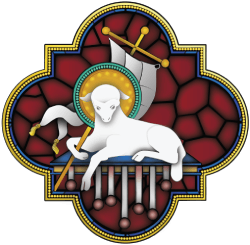Pentecost 4 | June 16, Year B
1 Sam. 15:34-16:13
or Ezek. 17:22-24
Ps. 20 or Ps. 92:1-4, 11-14
2 Cor. 5:6-10, (11-13), 14-17
Mark 4:26-34
God has unimaginable power, revealed not only in mighty acts on behalf of his people but also in the startling epiphanies of nature’s sheer force. The psalmist writes, “The voice of the Lord breaks the cedars; the Lord breaks the cedars of Lebanon. He makes Lebanon skip like a calf, and Sirion like a young wild ox. The voice of the Lord flashes forth flames of fire. The voice of the Lord shakes the wilderness. The Lord shakes the wilderness of Kadesh. The voice of the Lord causes the oaks to whirl, and strips the forest bare; and in his temple all say, ‘Glory’” (Ps. 29:5-9).
God’s almighty power is a perennial theme throughout the Scriptures. God is high and lifted up. We are not. Our lives are small and vulnerable, signifying — we may feel — almost nothing against the backdrop of a vast and expansive cosmos. We come into being and then return to the dust, and so we wonder if there is any purpose. “When I look at the heavens, the work of your fingers, the moon and the stars that you have established; what are human beings that you are mindful of them, mortals that you care for them” (Ps. 8:3-4)? The life, death, and resurrection of Jesus Christ is the answer. The power of Christ is the mercy of Christ. The greatness of the Son of God is veiled in obscurity and weakness. God has deigned to love what may appear of little worth.
Think of your small life. When God looks for a special human being to carry out a unique mission, God elects, again and again, the weak and vulnerable. Providing for a future king of Israel, God elects David, whose features, though appealing to us by today’s standards, were not so in antiquity. Observing seven sons of Jesse one by one, Samuel searches for evidence of power and strength. The Lord instructs, “Do not look on his appearance or on the height of his stature, because I have rejected him; for the Lord does not see as mortals see; they look on the outward appearance, but the Lord looks on the heart” (1 Sam. 16:7). There is one more son, called in from the fields where he is keeping watch over a flock of sheep. “Now he was ruddy, and had beautiful eyes, and was handsome” (1 Sam. 16:12). David’s delicate beauty and youth made him an unlikely candidate. And yet we well know, as St. Paul insists, that “God chose what is weak in the world to shame the strong” (1 Cor. 1:27).
Again, consider the apparent insignificance of your being. During the tragedy of the Babylonian exile, God promises a new beginning from something very small. “I myself will take a sprig from the lofty top of a cedar; I will set it out. I will break off a tender one from the topmost of its young twigs; I myself will plant it on a high and lofty mountain. On the mountain height of Israel I will plant it, in order that it may produce boughs and bear fruit, and become a noble cedar. Under it every kind of bird will live; in the shade of its branches will nest winged creates of every kind” (Ezek. 17:22-23). Your life, though a mere sprig, will be, in God’s time, a noble cedar. Or, turning to a parable of Jesus, the kingdom begins with a mustard seed, the smallest of all the seeds on earth. Your small life is the abode of God, the place of provident purpose.
Look It Up: 2 Corinthians 5:16
Think About It: Do not regard yourself from a human perspective.



